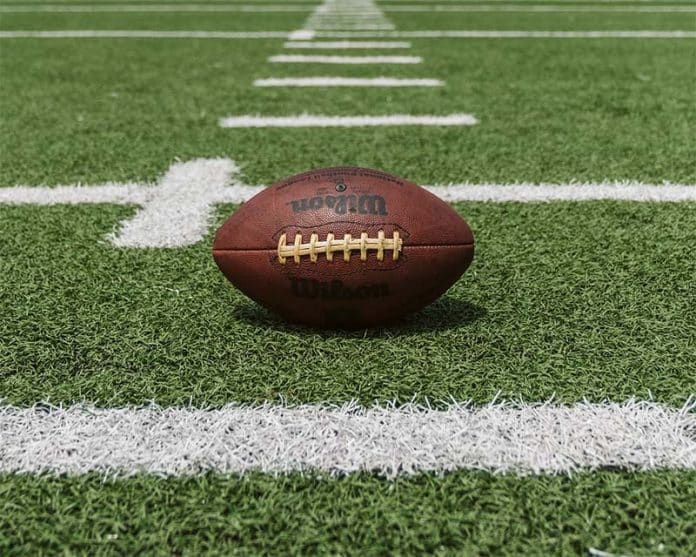
On account of a mid-September 2023 game between the Eagles and the Vikings, once again, one of the NFL’s most controversial regulations reared its ugly head quite publicly – the touchback rule. The match saw the Eagles and Vikings face off in a contest marked by several turnovers, which altered the game’s trajectory sizably, particularly in the latter part of the second quarter, when Justin Jefferson caught a pass, charging towards the end zone, ultimately losing control of the ball. The ensuing fumble traveled beyond the pylon and out of bounds. Hence, the contentious fumble rule came into play.
Per NFL’s rulebook, Section 7, Article 3, Item 4. If someone fumbles the ball in the playing field, forward into the opponent’s end zone, over the end line, or sideline, the defensive team gets awarded a touchback. If a ball gets fumbled in a team’s end zone or field of play and goes out of bounds, it is a safety if that team provided the impetus that sent the ball into the end zone. In the mentioned case, because Jefferson fumbled the ball, which then traveled over the goal line and out of bounds, it got awarded to the Eagles. As noted in Rule 11-5-1, an exception for momentum exists.
Much of the ensuing public debate revolved around the perceived penalty level, with many arguing it is too harsh, while others maintain that ball security is paramount. Had Jefferson fumbled, but the ball stayed in play, leaving the field at the one-foot line rather than crossing the pylon and entering the end zone. Then, possession would have gotten retained by the Vikings.
How NFL Rules Get Changed
A defined procedure plays out for a new rule to get featured in an upcoming season. The process is a collaboration between team representatives, shareholders, and the league’s Competition Committee. The latter gets comprised of various individuals. These include team owners, former and current players, coaches, etc. The body examines potential novel rules and for one to get approved. It requires a three-fourths vote by team owners.
In 2023, the NFL prioritized player safety and fair competition. Therefore, principal 2023 changes included a modified clock reset after a replay reversal under 2:00 and an automatic booth review for all failed fourth-down conversions. Plus, a reinforced helmet use rule, tripping becoming a personal foul, entailing a fifteen-yard penalty.
How NFL Rule Changes Affect Wagering Tactics
Without question, rule changes influence the game dynamics and undoubtedly impact player/team performance. For example, changes may modify quarterback protection or defensive pass interference. That will play a role in a quarterback’s performance, passing yards, and ability to create touchdowns.
That said, they may also create in-game wagering openings at top betting sites, allowing gamblers to benefit from rapidly changing circumstances via betting on in-play markets, ones where rule changes govern the game flow. Modifications in penalty rules, whether pertaining to helmet-to-helmet hits or pass interference, can impact bets in penalty-related markets. Accordingly, bettors should factor in the implications of stringent/lax penalty enforcement.
What Can Bettors Do to Be on Top of Their Game?
The NFL ruleset is continuously evolving. So, grasping the implications of rule changes is crucial, and the transactional phase creates windows of opportunity for astute gamblers. That requires continuous monitoring of sports news, as vigilance is paramount. Checking the Operations NFL website from time to time is also a must.
In short, a proactive approach is mandatory for one to be cognizant of the ever-changing rules landscape while keeping a keen eye on how coaches, officials, and players adapt to new game frameworks. If that seems like too much work, and a gambler is looking for more of a chance-based and fun-centric approach, then sticking to making special props, like which celebrity will show up at a game, maybe more in tune with a bettor’s gambling nature.












